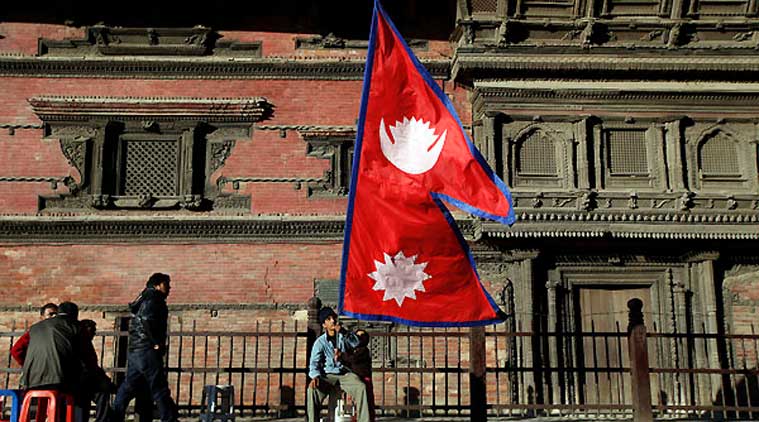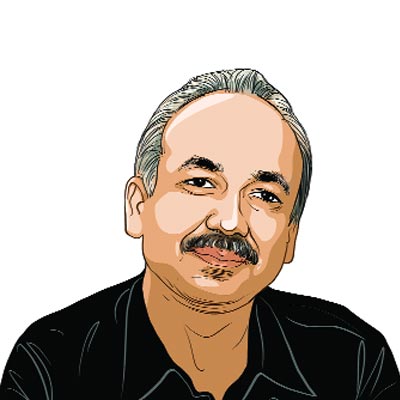Opinion Irresolute nation
As Nepal fumbles with identity issues, an open threat of separatism raises new concerns.

 The continuing chaos and uncertainty, following the political failure to deliver the constitution and the resultant loss of credibility and authority of the state, have encouraged both separatist and anarchic tendencies. (Source: AP photo/file)
The continuing chaos and uncertainty, following the political failure to deliver the constitution and the resultant loss of credibility and authority of the state, have encouraged both separatist and anarchic tendencies. (Source: AP photo/file)
Last week, a group of leaders, mostly from the Madhesi parties, told Baburam Bhattarai, chairman of the Political Dialogue and Consensus Committee of the Constituent Assembly (CA), that they will not accept the preliminary draft of the constitution. But what caused a flutter was the raised voice of Amresh Kumar Singh, a CA member from the ruling Nepali Congress, who said that they would be forced to go for a separate country if they did not get the province they were demanding. A CA member openly advocating secession was the last thing the House expected. Singh has ever since come in for sharp criticism.
[related-post]
Singh has never been free of controversy in the last nine years of transition and turbulence. His estranged wife, now divorced, accused him of using his clout in the Indian establishment to get her thrown out of the Film and Television Institute of India (FTII) in Pune and deported. The FTII was forced to take her back, following strong protests from the International Women’s Development Agency and others. India’s then home minister, P. Chidambaram, had to personally look into the case about six years ago. That did not stop Singh from claiming time and again that he was a person India trusted on Nepal affairs.
Singh’s public appearances with Indian diplomats, including ambassadors, continued to strengthen that claim. His recent secessionist threat, however, has triggered protests in Nepal, with some people demanding that his membership of the House be terminated. Most CA members do not believe that he enjoys India’s support any more, especially after Prime Minister Narendra Modi’s clear assertion during his visit to Nepal last year that India recognised “one Nepal”, and not separate entities of Madhes or the hills.
Nevertheless, the continuing chaos and uncertainty, following the political failure to deliver the constitution and the resultant loss of credibility and authority of the state, have encouraged both separatist and anarchic tendencies. Even the army has written to the CA that the current draft of the constitution undermines its role and position in national security and, thus, the draft is not acceptable to it. The Supreme Court, the election commission, the police and major institutions of state have their reservations about the draft as well. But it is not yet clear whether the CA will be willing to accept all these grievances within the two-week deadline that has been set for delivering the constitution.
A majority of opinions solicited from the public favours the restoration of Nepal’s status as a “Hindu nation”. An equally strong view also favours a directly elected head of executive. While three of the four major parties, with the exception of the Maoists, have agreed to replace “secularism” with “religious freedom”, they are divided over the suitability of a directly elected executive head. “We will be signing our own death warrant if we issue the draft as it is,” said Bhattarai on Wednesday. For a leader of the Maoist party that demanded a republican and secular Nepal, having to retreat from that position is a big political humiliation. At the same time, not sacrificing “secularism” will mean having to confront the wrath of the majority that has come out in the open, in an organised manner, in favour of a “Hindu” Nepal.
BJP MP Yogi Adityanath, who heads the Gorakhnath Mutt, was in Kathmandu recently and he asked for the monarchy to be restored so that a balance between tradition and modernisation could make Nepal a symbol of “hope and pride” for Hindus across the world. Interestingly, nobody from any of the major parties, including the PM and president, whom Adityanath met, opposed his suggestions.
The constitutional work, meanwhile, has become more complicated and difficult — even suicidal for its authors, as Bhattarai said. How effectively the government deals with the prevailing disorder and the open threat of separatism will concern people more than the delivery of the constitution.
yubaraj.ghimire@expressindia.com





